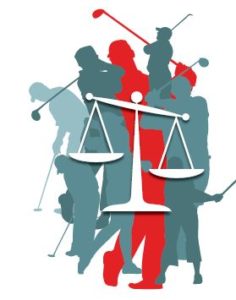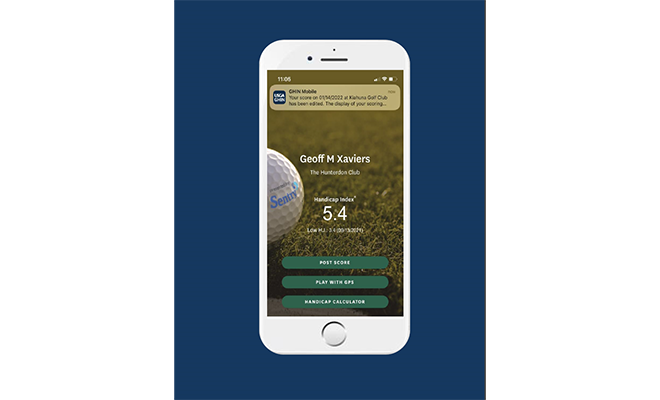Golf’s Great Equalizer: It’s a Safe Bet that the Handicap System Makes Your Games More Enjoyable

Golf can bring all kinds of feelings, from despair making someone want to quit the game to the euphoria from a great shot or round. For some, the thrill of competition is an essential element to heighten interest in the game. One can almost envision the heart rate of certain people speeding up over the thought of a six-foot putt to win a match.
Periodically, people call the USGA Handicap System™ “the great equalizer” for the game of golf. That phrase is an understatement. Consider what many of us witnessed during the Olympics over the summer. Could any of us keep pace with swimmer Katie Ledecky in the 800-meter freestyle; or generate a score equivalent to Simone Biles on the floor exercise; or take on Usain Bolt in the 200-meter dash? I think it would be a close battle with Ledecky if she went 800 meters and I went 50 meters, one length of the pool. Then there is golf!
In golf, maybe most of us don’t have the skills of Olympic gold medalists Justin Rose or Inbee Park, but if we utilized the USGA Handicap System, each of us could have a sporting chance competitively. Utilize the USGA Course Rating™ and Slope Rating®, convert the Handicap Index® to a Course Handicap™, and let’s go — there is hope!

There is a significant amount of science and analysis that has been done for years by the USGA to heighten the likelihood of equitable competition, so using all of this work is to our benefit. There are often questions as to why only the 10 best of 20 scores (handicap differentials to be exact) are used in the calculation and that it might be more fun if all 20 scores were considered. Well, we might play to our handicap more often under that environment, but a significant portion of equity for competing in differing formats would be thrown out the window.
Also, don’t forget that differing formats may have different recommendations to heighten the equity element. The USGA calls those allowances. Certain team events are handled differently than individual events; and match play is handled differently than stroke play. Section 9-4 of The USGA Handicap System gives guidance on many formats of play.
Okay, so the underpinnings for equitable competition are there. Then, the element of a friendly wager may inspire some golfers; golf seems to be well connected to wagering of one form or another. There are all kinds of iterations and nuances and various games, some designed to tilt the playing field in a certain direction, yet we all have this great system in place to help us heighten the likelihood of equity.
Keep your hand on your wallet and your eyes focused on the flagstick and derive enjoyment and comradery through the nature of competition.











